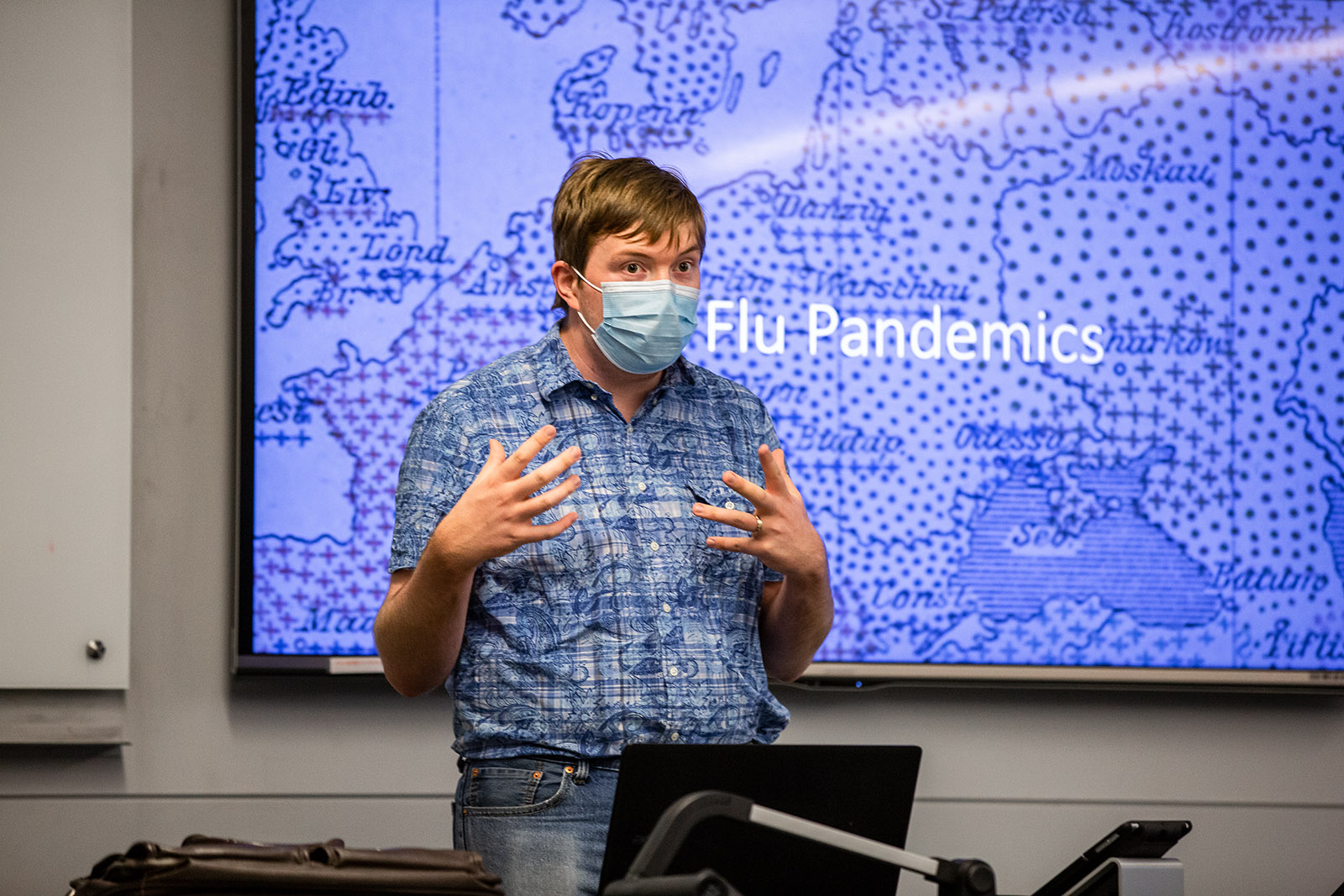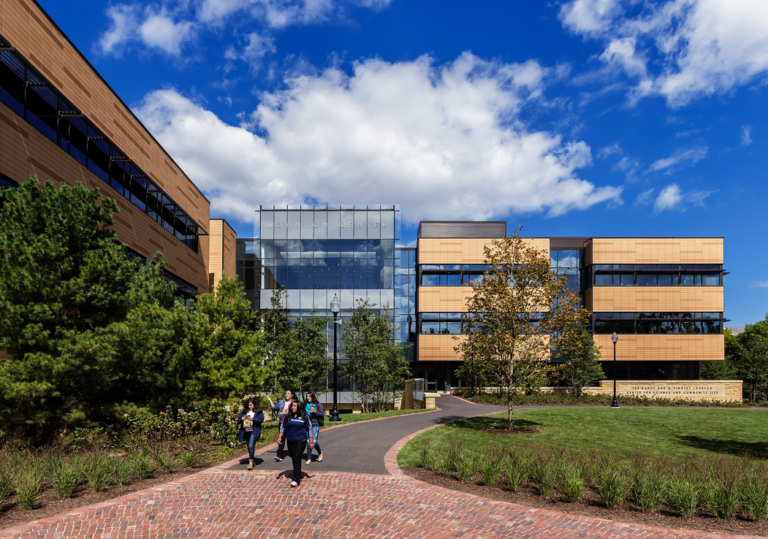Through the cross-disciplinary lenses of history and science, Professor and Lecturer in History Peter Olfelt and Associate Professor of Biology Drew Rholl, shared their expertise to offer an innovative curriculum teaching North Park students about pandemics.
Professor Olfelt teaches a hybrid class called Pandemics in History, where he juxtaposes three historical periods in the context of pandemics including the plague pandemics, the 1918 influenza outbreak, and AIDS. Students learn how pandemics have been perceived differently in these historical periods as well as the short-term and long-term effects the diseases have had on our society and culture.

In the sciences, Dr. Rholl teaches about microbes, how they grow, and how they affect the human body in his online course, Advanced Topics in Biology: Pandemics. With a specialized focus on the spread of diseases, the course explores the nature of organisms that cause disease, what different diseases look like, how they can be treated, and how the body is working.
Although the classes are not synchronous, students engage with both the history and science perspectives through shared video presentations. “The courses were designed to leverage the experience of each group so they could build off of each other,” said Dr. Rholl.
Integrated into the curriculum is the biology of the disease and its history. “To really dig into the nature of the disease, where it comes from, how it spreads, and the various strains of it, I find that that has made my classes even better,” said Professor Olfelt.
As a smaller environment, North Park’s close-knit community fosters cross-departmental relationships and collaboration among faculty and students. “Sometimes when we’re siloed in our own fields, we suffer from blind spots, which basically means that as a microbiologist I don’t know what history instructors don’t know. By having a conversation, we can identify those questions and have a much more effective transfer of ideas,” said Dr. Rholl.
Professor Olfelt says students are responding well to the collaborative curriculum, and it has boosted student engagement. “When we’re studying various diseases and looking at newspaper articles or papers, it’s easy to engage the class with how this relates to their own personal experience,” says Professor Olfelt, who’s excited to be teaching at this particular moment in time.
Thanks to the collaboration between Professor Olfelt and Dr. Rholl, these innovative courses are creating additional learning opportunities for students to make connections between the classroom and real-world experiences.


